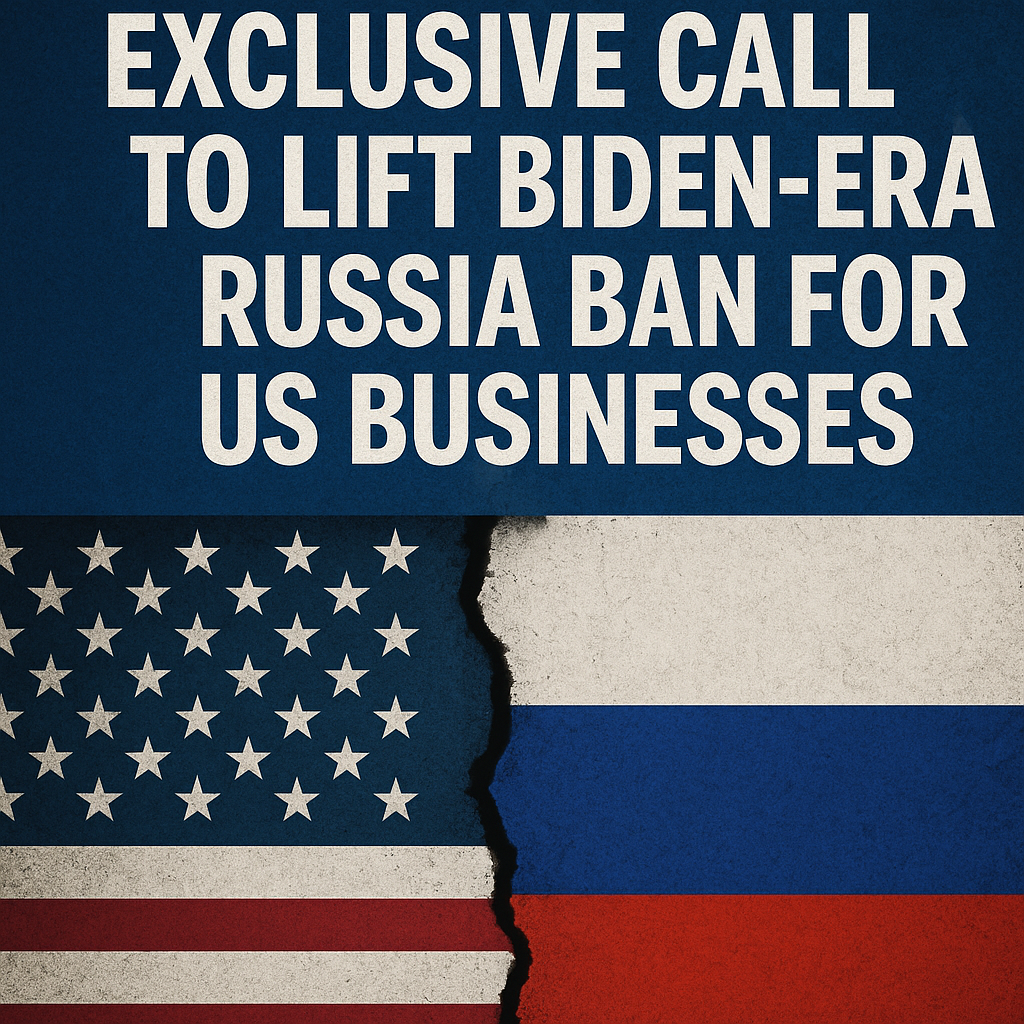Exclusive Call to Lift Biden-Era Russia Ban for US Businesses
Exclusive Call to Lift Biden-Era Russia Ban for US Businesses
The ongoing debate surrounding the Biden-era ban on U.S. investments in Russia has sparked diverse opinions from various stakeholders in the business community and political arena. As the pressures of inflation and global market dynamics shift, many are calling for a reevaluation of these restrictions, citing potential economic benefits.
Diverging Perspectives on Lifting the Ban
Business leaders, particularly those represented by the U.S. Chamber of Commerce, are voicing their dissatisfaction with the ongoing investment restrictions imposed on Russia. They argue that lifting the ban could not only benefit U.S. businesses but also facilitate better diplomatic relations. According to an article from RT, the Chamber believes that reopening avenues for investment could lead to economic growth. “In a globalized economy, isolating a market limits opportunities for innovation and expansion,” suggested a spokesperson.
In contrast, critics of the ban argue that lifting restrictions could be seen as capitulating to authoritarian regimes, particularly in light of ongoing geopolitical tensions. Al Jazeera highlights that many lawmakers are concerned about the moral implications of re-engaging economically with a country they view as aggressive and untrustworthy. The question around ethical investment versus economic opportunity remains a significant point of contention.
Economic Pragmatism vs. Ethical Considerations
The push to lift restrictions by the U.S. Chamber of Commerce is grounded in what they refer to as “economic pragmatism.” The rationale is straightforward: U.S. companies could seize new opportunities in emerging markets, which would be beneficial for the economy. They assert that a more open relationship with Russia could potentially create jobs domestically and reduce the burden of inflation by increasing competition in various sectors.
However, this view is not universally accepted. Many experts warn that increased investments could inadvertently empower regimes that do not align with democratic values. According to Sky News, a coalition of lawmakers has raised concerns about supporting a government that has faced international condemnation for actions such as the ongoing conflict in Ukraine.
Moreover, the Biden administration’s existing sanctions were designed not only to economically isolate Russia but also to send a clear message regarding its global behavior. As noted in RT, the implications of reversing such measures could undermine the perceived strength of U.S. foreign policy, potentially encouraging other nations to challenge international norms.
Weighing the Costs and Benefits
The debate surrounding the removal of the Russia investment ban raises critical questions about the balance between economic interests and ethical governance. Supporters argue that the benefits of lifting the ban could outweigh the risks, as businesses leverage economic engagement to foster positive change and promote stability in international relations. The potential for economic recovery is undeniably appealing, especially in light of the recent pressures felt by many sectors due to inflation and the pandemic’s aftermath.
Conversely, opponents caution that overlooking ethical considerations could have dire consequences not just for U.S. businesses but for global political stability. They assert that allowing U.S. investments in Russia could legitimize state actions that contradict core democratic values. This complex landscape suggests that policymakers must consider both the potential economic uplift and the ethical ramifications of such moves.
The Path Forward: A Balanced Approach
While the discussions surrounding the lifting of the Russia investment ban are ongoing, a balanced approach appears most appropriate. Striking a compromise that considers both economic benefits and ethical concerns may facilitate a more thoughtful engagement strategy.
– Promoting Conditional Engagement: Any move towards lifting the ban could be paired with strict guidelines. For example, investments could be conditioned on tangible human rights improvements or transparent governance practices.
– Gradual Reassessment: Instead of a blanket lift on the ban, a phased re-evaluation might be more prudent, allowing for monitoring of Russia’s actions while reintroducing American businesses in a controlled manner.
– Encouraging Dialogue: Open channels of communication should be maintained, encouraging discussions between business leaders, lawmakers, and diplomatic representatives to navigate these complex waters collectively.
The decision to lift the Biden-era ban on investments in Russia is not one to be taken lightly. It encapsulates broader themes of economic interest, ethical governance, and international relations, with implications that extend beyond the borders of any single nation. As various stakeholders weigh the benefits and risks, the path forward should remain grounded in both pragmatic economic considerations and ethical imperatives.




































